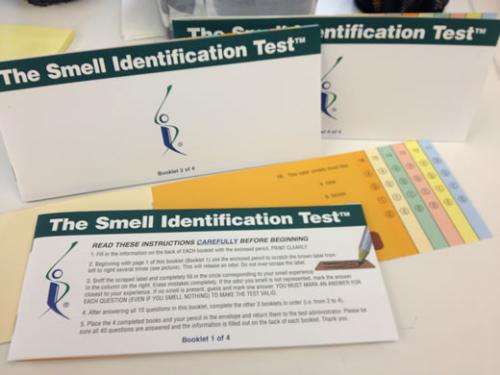Researchers look for clues to progression of Parkinson's disease

Emory researchers are conducting a prospective clinical study to examine the possibility of diagnosing Parkinson's disease (PD) before motor symptoms occur. The study is an arm of the Parkinson's Progression Markers Initiative (PPMI), which was launched in 2010 by The Michael J. Fox Foundation for Parkinson's Research to help define one or more biomarkers of PD.
The PPMI study included early, untreated PD patients, and this arm of the study will include pre-symptomatic patients. The study will examine biomarkers indicative of conversion from no motor symptoms to the typical neurological disorder. Patients will undergo Single-Photon Emission Computed Tomography (SPECT) and Magnetic Resonance Imaging (MRI), and have tests to examine brain proteins that mark the disease, and possibly mark the conversion to symptomatic disease.
"Presently, there is no test for diagnosing Parkinson's," says Stewart Factor, DO, professor of neurology at Emory University School of Medicine and principal site investigator of the study. "It is a clinical diagnosis based on history and clinical examination findings.
"Since Parkinson's disease is a progressive disorder, we believe that by learning to recognize pre-motor symptoms for PD, we may be able to develop therapies that would delay or prevent the onset of the impaired movements, tremor and gait problems in PD patients."
In PD, the nerve cells that produce dopamine, a chemical messenger in the brain that is responsible for movement, are degenerating. As time goes on, the dopamine decreases to a threshold level that leads to problems with motor coordination and muscle control. The time from the start of degeneration to the development of symptoms could be as long as 10 years.
The pre-motor arm of PPMI will enroll participants who do not have motor symptoms of Parkinson's disease, but are living with one of three potential risk factors for PD: a reduced sense of smell; rapid eye movement sleep behavior disorder (acting out one's dreams); or a mutation in the LRRK2 gene – the single greatest genetic contributor to PD known to date. Then the participants will be followed over several years to see if, or when, they develop Parkinson's disease.
Volunteers who participate in the Emory trial will complete a brief online survey about their sense of smell. Some of the participants will then be mailed a scratch-and-sniff smell test and brief questionnaire to be completed at home and returned to the researchers.
Once the researchers have collected the information, some individuals may be asked to undergo a SPECT imaging scan to examine the integrity of the dopamine system. If abnormal, they will be asked to participate in the study for the next few years. Alternatively, if they have rapid eye movement sleep behavior disorder, a sleep study will be reviewed and if confirmed they will have the SPECT imaging study done.
"While most people with a reduced sense of smell will not develop PD, the loss or reduction of the ability smell is a common early feature in people with Parkinson's," Factor explains. "Decreased sense of smell is demonstrated in 90 percent of early-stage PD cases. Smell loss begins an average of four years before being diagnosed with the disease."
Factor is director of the Emory Comprehensive Parkinson's Disease Center, and director of the movement disorders program in the Department of Neurology at Emory.
A consortium of 13 industry partners funds the Parkinson's Progression Markers Initiative. Emory is one of 23 official sites involved in the trial.















